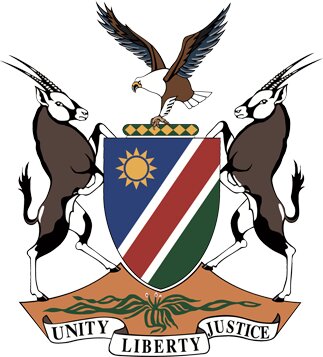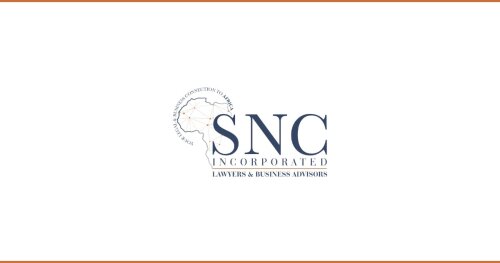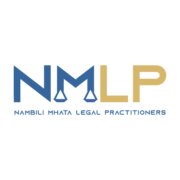Best Restructuring & Insolvency Lawyers in Windhoek
Share your needs with us, get contacted by law firms.
Free. Takes 2 min.
List of the best lawyers in Windhoek, Namibia
About Restructuring & Insolvency Law in Windhoek, Namibia
Restructuring and Insolvency law in Windhoek, Namibia exists to help individuals and businesses facing serious financial challenges. The goal of these laws is to provide a structured legal process for resolving debt and, where possible, to rescue viable businesses or fairly distribute a debtor's assets among creditors in a transparent manner. Both out-of-court restructuring and formal insolvency proceedings can be used, depending on the situation. The legal framework is governed primarily by the Insolvency Act 24 of 1936 and related statutes, as well as certain provisions from the Companies Act for corporate insolvencies. Windhoek, being the economic hub of Namibia, has a range of legal professionals and resources to assist those encountering financial distress.
Why You May Need a Lawyer
There are various scenarios in which seeking the advice of a restructuring and insolvency lawyer in Windhoek is critical. Some common situations include:
- You or your business can no longer meet financial obligations as debts become due. - Creditors are pursuing aggressive collection actions, such as repossession or litigation. - There is a need to negotiate debt restructuring arrangements with banks or suppliers. - Voluntary or involuntary liquidation proceedings are being considered. - You suspect a debtor is hiding assets or defrauding creditors. - You are a creditor seeking to recover owed funds through the insolvency process. - Corporate restructuring is required due to a merger, acquisition, or changes in regulatory compliance. - You want to understand your rights and obligations under Namibian law in an insolvency context.
A knowledgeable lawyer will help explain the implications of each option, handle complex filing requirements, protect your interests, and ensure compliance with legal and court procedures.
Local Laws Overview
In Namibia, insolvency and restructuring matters are primarily governed by the Insolvency Act 24 of 1936 for individuals and unincorporated entities, and by the Companies Act 28 of 2004 for companies. Key features of these statutes include:
- Sequestration: The Insolvency Act provides procedures for the sequestration of estates of individuals or partnerships unable to pay their debts. This can be voluntary or compulsory, initiated by creditors.
- Liquidation: Companies in financial distress may enter into voluntary or involuntary liquidation, managed through court-appointed liquidators.
- Rehabilitation: After certain conditions are met, a previously insolvent person or firm may apply for rehabilitation, which restores their legal status and relieves them of unpaid debts.
- Preference and Ranking of Creditors: The law sets out how creditors are to be treated, including the order in which debts are paid from the insolvent estate.
- Asset Protection and Voidable Transactions: Transactions made to defraud creditors (such as undervalued asset transfers) may be set aside by the court.
- Cross-Border Insolvency: Namibia has some procedures for recognizing foreign insolvency proceedings, although these may be complex and require legal guidance.
Because these processes are formal and can deeply affect the rights of all parties, legal representation is strongly recommended.
Frequently Asked Questions
What is the difference between restructuring and insolvency?
Restructuring involves reorganizing a company's debts and operations to restore financial health without liquidation. Insolvency refers to the legal state where an individual or entity is unable to pay its debts, potentially leading to sequestration or liquidation.
What are the initial signs that my business might need insolvency advice?
Common signs include persistent cash flow problems, inability to pay creditors on time, receiving legal demands from creditors, or when liabilities far exceed assets.
Can I avoid liquidation by restructuring my debts in Namibia?
Yes, in some cases creditors and debtors can negotiate repayment arrangements or informal restructuring plans to avoid liquidation. Professional advice is essential to put such agreements in place legally.
How does voluntary sequestration work for individuals?
If you cannot pay your debts, you may apply to the court for voluntary sequestration. If granted, your assets are sold to pay creditors. You are then declared insolvent but may later apply for rehabilitation.
What happens to my assets if I am declared insolvent?
Once declared insolvent, an appointed trustee or liquidator takes control of your assets (with some exceptions) and arranges for their sale to pay creditors as per the law.
How long does insolvency last in Namibia?
Insolvency can last several years. After specific conditions are met, you may apply to court for rehabilitation, which ends the insolvency and restores your financial legal status.
Are directors personally liable for company debts after liquidation?
Generally, directors are not personally liable unless they breached fiduciary duties, acted recklessly, or engaged in fraudulent conduct. Specific advice should be sought based on your circumstances.
Can creditors take my home or personal possessions?
Some personal assets are protected by law. However, most of your assets may be sold to satisfy creditors. A lawyer can provide specific guidance on what is exempt.
What are voidable transactions?
These are transactions made before insolvency aimed at disadvantaging creditors, such as transferring assets below value. The court can reverse them upon application.
Do I need to attend court during insolvency proceedings?
In most cases, you or your representative will need to attend court at certain stages, especially for formal applications or creditor meetings. A lawyer will guide you through the process.
Additional Resources
If you need more information or assistance, the following Namibian resources may be helpful:
- Master of the High Court of Namibia: Oversees insolvency and liquidation proceedings. - Legal Assistance Centre: Offers information and basic counselling on legal matters, including financial distress. - Law Society of Namibia: Provides directories to help you find accredited lawyers with insolvency experience. - Commercial banks and financial institutions: Often have financial rehabilitation units or can refer you to recognized debt counsellors. - NAMFISA (Namibia Financial Institutions Supervisory Authority): Offers oversight and consumer protection in financial matters.
Next Steps
If you or your business is experiencing financial difficulties in Windhoek, consider the following steps:
1. Gather all financial records, contracts, and documentation related to your debts and assets. 2. Seek professional advice from a qualified restructuring and insolvency lawyer with local experience. 3. Avoid entering into new agreements or making payments to selected creditors without legal advice, as this may affect future proceedings. 4. Be clear and transparent about your financial situation when consulting with your lawyer. 5. If threatened with legal proceedings, do not ignore legal notices or court papers. Respond promptly and seek guidance. 6. Consider all available options, including informal restructuring, formal insolvency, or liquidation, as advised. 7. Use available local resources, such as the Master of the High Court, for guidance on procedural requirements.
Taking timely professional advice is the best way to understand your rights and obligations under Namibian law and to protect your interests during financial distress in Windhoek.
Lawzana helps you find the best lawyers and law firms in Windhoek through a curated and pre-screened list of qualified legal professionals. Our platform offers rankings and detailed profiles of attorneys and law firms, allowing you to compare based on practice areas, including Restructuring & Insolvency, experience, and client feedback.
Each profile includes a description of the firm's areas of practice, client reviews, team members and partners, year of establishment, spoken languages, office locations, contact information, social media presence, and any published articles or resources. Most firms on our platform speak English and are experienced in both local and international legal matters.
Get a quote from top-rated law firms in Windhoek, Namibia — quickly, securely, and without unnecessary hassle.
Disclaimer:
The information provided on this page is for general informational purposes only and does not constitute legal advice. While we strive to ensure the accuracy and relevance of the content, legal information may change over time, and interpretations of the law can vary. You should always consult with a qualified legal professional for advice specific to your situation.
We disclaim all liability for actions taken or not taken based on the content of this page. If you believe any information is incorrect or outdated, please contact us, and we will review and update it where appropriate.















